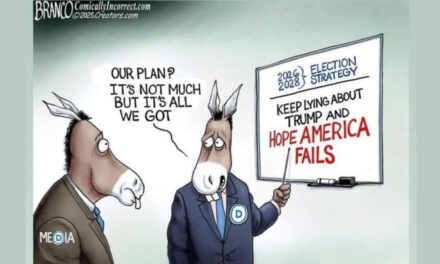
Does China Need to Fail for the U.S. to Win? A Word from Brookings

China has risen as a significant global powerhouse, raising questions about the nature of the relationship between the United States and the Asian giant. Specifically, as China’s growth continues, does it pose a threat to the US’s national security?
The Biden administration has signaled concerns, noting China’s intent and increasing power to reshape the international landscape. But is restricting China’s economic growth the answer? And can the US promote open markets while also limiting a competitor’s access?
To delve deeper into this, experts from the Brookings Foreign Policy project examined the intricate dynamics of the US-China relationship. Here’s a more simplified look at their findings:
China’s Economic Growth: A Direct Threat?
It isn’t China’s growth itself that’s alarming. Instead, it’s the aggressive tactics Beijing uses to fuel this growth and the aims of this expansion. The primary concern is whether the US should implement policies to protect its interests, even if these might hamper China’s growth. The argument is a strong ‘yes’ since Beijing’s tactics could disrupt global supply chains and stifle innovation, undermining the values the US and its allies hold dear.
However, distinguishing between China’s growth and its methods is crucial for two reasons:
- Effective Communication: By focusing on China’s actions rather than their outcomes, the US can avoid misplaced criticism. China’s current economic problems stem more from its internal policies than any external factors.
- Strategic Clarity: A clear distinction ensures that US policies remain sharply focused, avoiding premature relaxation of strategies based merely on China’s economic conditions.
The Tech Race: A New Battleground
Today’s world is witnessing rapid advancements in technology. The race for supremacy in fields like artificial intelligence, biotechnology, and quantum sciences will reshape global economies. Those who lead will also influence global politics. China recognizes the significance of this and has charted aggressive strategies to lead in tech sectors, ranging from quantum communications to genetic engineering.
US’s Role in the Competition
While China focuses on technological dominance, the US must realign its priorities. US corporations have been eyeing short-term profits, often at the expense of long-term research and development. To be competitive, the US needs to foster an environment where companies can think long-term without undue pressures. Additionally, the US needs to ensure its companies can compete globally without being hamstrung by restrictive policies.
China: An Adversary or Partner?
Although China’s military buildup and aggressive tactics in areas like the South China Sea are concerning, an approach that aims purely to suppress China would be misguided and could lead to disastrous outcomes. A balanced view suggests that the US should be firm in countering aggressive tactics but should avoid policies that could be perceived as attempts to stifle China’s growth entirely.
The Bottom Line
The overarching consensus among experts is that the focus shouldn’t be on halting China’s growth. Instead, the US should prioritize strengthening its position, fostering innovation, and maintaining its global leadership role. Policies should be targeted, transparent, and aim to uphold the principles of the global economic order.
While China’s ambitions may pose challenges, the US’s strength lies in promoting a world where fair competition reigns supreme. As the dynamics between the US and China evolve, clarity and measured actions will be crucial in navigating the future landscape.
Editor’s note: With due respect to the Brookings Institution, China is the only country in the world which channels its economic might almost solely into the expansion of the power of the Chinese Communist Party. We would prefer to lose that economic production rather than succumb to a totalitarian government trying to suck up the countries around them.
But a strategy of keeping China down would not be a successful one. A better choice is to foster competition in the region to maintain alliances and indeed foster respect for the sovereignty and independence of countries that otherwise might be absorbed into that totalitarian nightmare.



























So you want me to call someone a nigger? Ok. Who would you suggest? And bathhouse Barry is accused of…
I know that you’re a democrat. But that’s a character flaw. The Jan 6 patriots didn’t hurt the police unless…
Seth, no he doesn't. Unless you mean as a fan of Jay Z. I am a Democrat and I do…
Did I ask you to apologize? Do I care about your racist slave-owning forefathers? Did I ask you to apologize…
I really don’t care what’s considered racist or homophobia or whatever. But speaking of which, I can’t see the right…